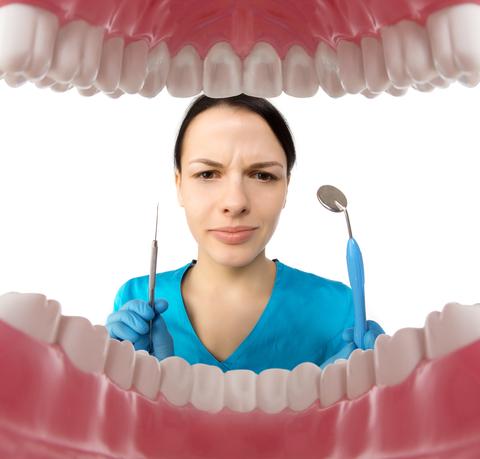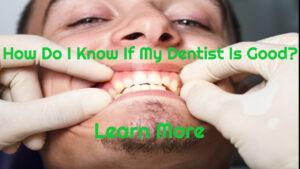Dental Emergencies – Know How To Spot Them and How To Respond
Any dental problem might be perceived as an emergency. For example, a toothache may quickly become painful in a matter of minutes if left untreated. However, requesting emergency treatment and really needing immediate care are two very different things in this case. Because of this, it is critical to understand what constitutes a dental emergency and how patients should respond in such a scenario.
How To Know if It’s a Dental Emergency
Dental crises are classified into two types. First, there are some who require immediate dental care and must attend an emergency room. Calling the dentist’s office is the best way to assess whether or not you require treatment. Many dentists, however, maintain time open to deal with emergency dental difficulties.
If it is beyond regular business hours for the dentist, an answering service is usually available. When calling the answering service, the caller will be able to leave a message or ask a question for the dentist. If the condition requires immediate care, the dentist will usually return your call with instructions. In rare situations, the answering service may provide you with the phone number of an emergency dental treatment clinic. In any case, they should provide information on whether or not the situation is an emergency.
When Should I Go to the Emergency Room?
There are situations when a dental emergency is so serious that it necessitates a visit to the emergency room of the nearby hospital. These are frequent issues in which a person’s life may be jeopardized if necessary care is not sought. As a result, these risky conditions should be treated by a medical expert in the local emergency hospital.
Severe trauma to the mouth is a common reason for a visit to the emergency room. Any injury to the airways or significant bleeding of the mouth or gums is a reason for worry, and the patient should be seen by a physician.
Toothaches do not always need a trip to the emergency department. However, if the toothache has lasted many days, is severe, or has worsened, it may be necessary to get the tooth examined by a physician. An infection might be indicated by pain, swelling, and fever. An abscess or serious infection is a medical emergency. A dentist must treat it right away to prevent it from spreading and causing serious consequences.
What Isn’t a Dental Emergency
Many circumstances may appear to be emergencies, but they may be postponed until a regular appointment with a dentist is available. Avoiding urgent or emergency treatment when it is not absolutely essential can help to guarantee that services are available for those who require them while also lowering the patient’s expenditures. Emergency treatments and after-hours dental consultations can be costly.
Regular toothaches that do not cause swelling or bleeding are not considered emergencies. These sorts of concerns can be managed with over-the-counter pain medicines, enabling the patient to wait until an appointment becomes available. Similarly, oral ulcers, bleeding gums, and even chipped or shattered teeth are not always emergencies.
The simplest way to know if a dental condition is an emergency is if it is one that would worsen if not treated right away, such as an infection. Make an appointment with your dentist as soon as possible if you have a dental condition. Making an appointment will cure the problem while saving the patient a lot of worry and money.
Common Dental Emergencies
A dental emergency can be caused by a variety of oral disorders. These conditions necessitate a visit to the dentist as soon as possible, but not necessarily an emergency hospital visit. If one of these problems emerges, the patient should contact their dentist to see if they have an opening or seek care at an after-hours institution.
Unexplained discomfort, swelling, or bleeding are examples of typical dental emergencies. Furthermore, any exposed nerves can cause agonizing pain, which the dentist should address right once. A knocked-out tooth, a missing filling, or a fractured crown are all typical problems that should be addressed by a dentist as soon as possible.
How to Avoid Potential Emergencies
The greatest therapy for dental crises, like any other, is to prevent them from happening in the first place. Oral hygiene is one of the most effective ways to avoid dental disorders such as abscesses and other infections.
While good health and cleanliness can help prevent some problems, injuries to the teeth and mouth can still happen. Fortunately, certain safeguards can still be taken by sufferers. Mouthguards and helmets, for example, decrease impacts and prevent oral injuries when engaging in sports or other dangerous activities.
How to Find An Emergency Dentist
When a dental emergency strikes, it is critical to locate a nearby emergency dentist. Often, anybody may locate an emergency dentist by seeking assistance from the patient’s regular dentist. In rare situations, the patient’s regular dentist may be able to give emergency treatments outside usual office hours. If they do not, they may be able to recommend you to another dentist or facility that offers after-hours care.
Another option for locating a nearby emergency dentist is to use the American Dental Association’s locate service. Their website allows people to enter their addresses and choose a facility that provides same-day care for emergencies.
What to Do Before Your Emergency Dental Appointment
It can be tough to wait for an emergency dental appointment, especially when you are in a lot of pain. Fortunately, there are several pre-appointment techniques that can help alleviate discomfort, swelling, and even bleeding.
To relieve discomfort, swelling, and bleeding, rinse the mouth with warm water. Next, apply pressure to the affected region. Applying a cold compress to the affected region for twenty minutes at a time will also help minimize or eliminate edema and bleeding. While waiting for an appointment, over-the-counter pain medications such as ibuprofen or acetaminophen might be beneficial.
Brought To You By: https://www.simplysmilesdds.com/
The post What Is Considered A Dental Emergency And How Should One Respond? appeared first on https://arquiaca.org
The post What Is Considered A Dental Emergency And How Should One Respond? appeared first on https://wookicentral.com
The post What Is Considered A Dental Emergency And How Should One Respond? appeared first on https://gqcentral.co.uk



